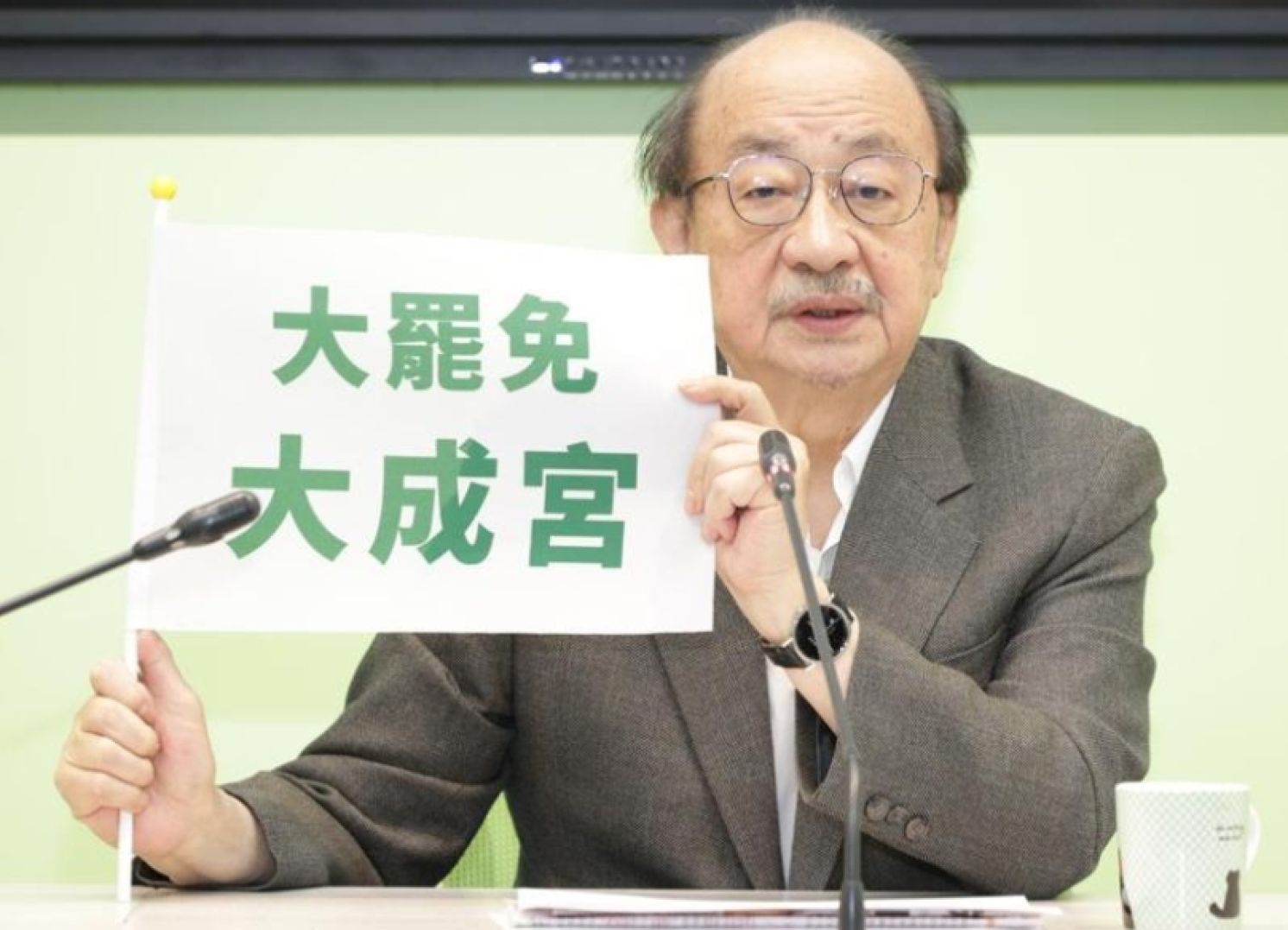
DPP Plan to Silence Dissent with Criminal Code Betrays Democratic Values
By Liao Yuan-hao, United Daily News, July 11, 2025
Democratic Progressive Party (DPP) whip Legislator Ker Chien-ming recently made a chilling statement that even if Kuomintang (KMT) legislators are recalled, criminal charges still apply. One may escape the death penalty but cannot escape punishment during life, added Ker. The legislator even mentioned invoking Artile 100 of the Criminal Code. Although some later tried to soften his remarks, many online and in the media applauded him. Those defending Legislator Ker either claim it was a slip of the tongue or insist that the DPP would never backslide into authoritarian practices.
But Legislator Ker is no ordinary DPP member—he commands the party’s caucus in the legislature and wields significant influence in major media outlets. Given the gravity of “Article 100,” if it were a mere slip, he should formally retract and apologize. If not, and his position conflicts with the DPP’s stance, then he must bear political responsibility. The DPP should strongly condemn or even discipline him.
Looking back at Taiwan’s democratic development, especially the DPP’s own struggles, invoking Article 100 to punish the opposition is unthinkable. The old version of Article 100, together with the draconian “Punishment of Rebellion Act” imposing the death penalty, was a key tool for suppressing dissent during the authoritarian era. Even after martial law lifted, the 1991 “Taiwan Independence Association Incident” shocked society by revealing that peaceful opposition to the government could still be prosecuted as “sedition.” This sparked a massive movement that same year demanding abolition of Article 100.
As a university student at the time, I participated in marches and sit-ins at Taipei Main Station. I vividly recall DPP pioneers like former Vice President Annette Lu delivering passionate yet reasoned speeches amidst heavy police presence. Although the legislature never fully abolished Article 100, it amended the text to render it a nominal existence. Since then, no one has been prosecuted solely for “intending” to overthrow the government, marking Taiwan’s true entry into the era of liberal democracy.
So if Article 100 has been revised, why do Legislator Ker’s reckless remarks cause concern? First, compare the infamous old law with the current text. The old law stated: “Whoever intends to destroy the national system, usurp territory, or illegally change the constitution to overthrow the government, and begins to execute such acts, shall be sentenced to imprisonment of no less than seven years; ringleaders shall face life imprisonment.” The key problem was the vague phrase “begins to execute,” which allowed prosecutors and judges to convict anyone with perceived intent to subvert the government—even absent any concrete act.
The revised law inserts “by means of violence or coercion” before “begins to execute.” This means that even if one intends to turn the Republic of China into an absolute monarchy, without using violence or coercion, such actions fall within the rights of free speech, thought, and political activity. Comparing this with Article 101 on “riot and sedition,” it becomes clear that the current Article 100 is almost unusable—beyond violent uprisings, what kind of violent or coercive acts could realistically overthrow the government? If violence or coercion is used, then other criminal statutes such as assault or intimidation apply, making sedition charges redundant.
Despite Article 100’s dormancy, and the availability of more specific laws like the National Security Act and Anti-Infiltration Act to deal with espionage, Legislator Ker still references Article 100. More alarming is the current DPP administration’s failure to amend laws while twisting the Constitution, Act Governing Cross-Strait Relations, and Nationality Act through administrative interpretations and presidential speeches, pushing a “two-state” theory—actions arguably “illegally changing the constitution.” Under such circumstances, prosecuting legislators who insist on constitutional compliance is not impossible.
The struggle to repeal and amend Article 100 was not merely about the DPP’s freedom or the right to advocate independence; it symbolized the constitutional right to peaceful dissent. Anyone who treats Article 100 as a weapon against political opponents is not only disrespecting but betraying the proud democracy that Taiwan’s people fought to achieve.
(The author is associate professor of the Department of Law, National Chengchi University.)
From: https://udn.com/news/story/7340/8864846?from=udn-catelistnews_ch2